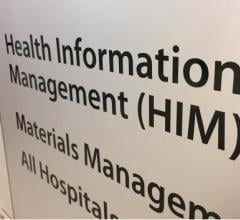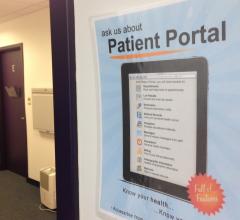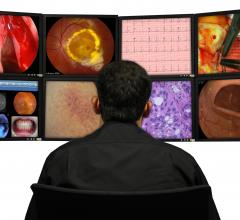
David Blumenthal, M.D., M.P.P., National Coordinator for Health Information Technology,
August 20, 2009 - "When I began to have access to patients’ electronic medical records. It made me a much better doctor," wrote David Blumenthal, M.D., M.P.P., National Coordinator for Health Information Technology, U.S. Department of Health & Human Services, in a publicly distributed message. But will the Health Information Technology for Economic and Clinical Health (HITECH) Act help American doctors make a similar transformation.
In the letter, Dr. Blumenthal states: "With the passage earlier this year of the Health Information Technology for Economic and Clinical Health (HITECH) Act, we have the tools to begin a major transformation in American healthcare made possible through the creation of a secure, interoperable nationwide health information network.
Of course, this system is not an end in itself. Rather, it will enable countless other improvements in the quality and efficiency of health care that will make Americans healthier and their economy stronger.
My personal belief in this transformation is not based on theory or conjecture. As a primary care physician for over 30 years, I spent the first twenty shuffling papers in search of missing studies and frequently hoping, during middle-of-the-night emergencies, that I knew enough about patients’ medical histories to make good decisions. All that changed when I began to have access to patients’ electronic medical records. It made me a much better doctor. I would never go back, and neither would the vast majority of American physicians who have made the leap into the electronic age.
In fact, it would be hard for any health professional today to escape the conclusion that the antiquated, paper-dominated system we now have in place isn’t working well for patients, creates added costs and inefficiencies, and isn’t sustainable. As we look at our nation’s annual health care expenditures of approximately $2.5 trillion, there are many ways our current system fails both patients and providers. It is clear that change is necessary.
But how and why is nationwide electronic health information exchange so critical to achieving such change? Most importantly, because it provides the best opportunity for each patient to receive optimal care. The technology will make patients’ complete medical information securely and reliably available to health care providers where and when it is needed – when clinician and patient are together facing medical decisions that can make a lasting difference.
Better, faster, more reliable and efficient care also ultimately reduces system-wide costs by delivering results that help to avoid expensive or prolonged hospitalization from delayed or ineffective treatment, avert costly and sometimes fatal adverse events and unnecessary procedures, and can help to eliminate the onset of disease by better informed management of each patient’s health.
The goal of assuring an electronic health record for every American is daunting. We at the Office of the National Coordinator for Health Information Technology (ONC) do not pretend otherwise. We know this will be hard for some clinicians and hospitals, and we stand ready to help with resources provided by the Congress and the Administration.
We also recognize that we cannot achieve the benefits of a nationwide health information system unless we can assure all Americans that their personal health information will remain private and secure when this system exists. Putting into place safeguards for the privacy and security of this information, when it is in electronic form, will be an ongoing priority that influences and guides all of our efforts.
In the days, weeks, and months ahead, we will be rolling out a number of pivotal initiatives called for under the HITECH Act. I urge you to join and support us as we lay the foundation for every American to benefit from an electronic health record, as part of a modernized, interconnected, and vastly improved system of care delivery. We at ONC will be making every effort to keep you updated and fully engaged in all the steps of this national journey."
Email: [email protected]
For more information: www.hhs.gov


 June 14, 2024
June 14, 2024 









